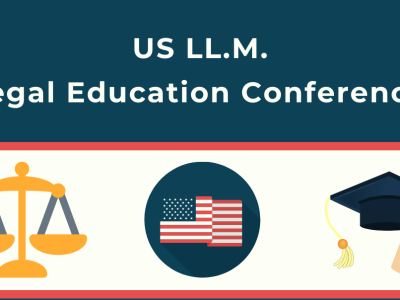The Stanford experience
Post-impressions
By Bitsou on Sep 15, 2006
Hi everyone,
Some may already know me, some may not. I have been a frequent participant to the llm-guide website since two years, i.e. before, during and now after my LLM. In April 2005, I was lucky enough to have the possibility to choose between several prestigious law schools, and finally made up my mind for Stanford. I won't discuss the reasons of my choice now, but rather relate my experience now that I have finished the program.
1. The program: Stanford consists of three different programs. Two LLM's focusing for the one on IP and for the other on corporate law (about 10 students per program) and the SPILS Program (about 12 students). Yes, Stanford is small and, in my opinion, the very small ratio student/professor is a big advantage as your professors know you by your name and some classes have no more than 4 students (the largest one I attended was trademark with about 25 students).
Now, let's face the truth, Stanford has some amazing professors, and some amazingly disappointing. For people coming from countries who have a good legal education level (such as but not exclusively Germany, Switzerland, Belgium or France), you shouldn't expect to suddenly discover another world no matter where you go....after all, this is a University with students that are usually younger than you are and without any professional experience. In other words, this is still the same world, not a different one.
The SPILS Program I attended made it compulsory to attend 4 classes; 2 of them were, in my opinion, a waste of time and unfortunately prevented me from taking other classes due to the credit restrictions. However, good news for you, they probably realized their mistakes and the participants will now only have 2 mandatory classes (the good ones), which will leave more space for choices. For the big fans of Larry Lessig, the man is truly brilliant, but unfortunately too busy for his classes to which he comes hardly prepared according to some students.
This was the negative part. Now the positive. The SPILS Program is very particular and learns scholars to pursue empirical studies focusing on different analytical tools (interviews, surveys, statistics). At first, I was fairly skeptical. However, after having experienced it for a year, I have to admit that this experience proved extremely useful as a scholar as I now have plenty of ideas for empirical research to be carried on. This surely is a great added value to give more depth for any future research. In other words, the goal of the program was fulfilled as far as I'm concerned and I have to admit that, without even realizing it, Stanford changed my way of thinking.
This change is also true of classes in general. You don't really care about the law itself, but about the policy of the law (this is true in other so-called elite law schools, particularly in Yale), which makes you look at things and think differently.
Now, having been a lawyer for a couple of years, I have to say that I never thought that I was completely overwhelmed with work. This however differs for each student, and some were working more than 12 hours per day. As far as I'm concerned, I really had time to enjoy myself while doing all my readings.
2. The atmosphere: that surely is the great asset of Stanford. Stanford is just a paradise and a huge park surrounded by trees (like a Club Med for the ones who know the concept...). You sit down under the shade of palm trees or lying next to one of the two olympic pools (always heated at 28 degrees) before going to play tennis with some friends of yours. After a day of work, you may take the benefit of the athletic facilities or free DVD rentals if you'd rather rest at your place. For families, Stanford surely is a dream with a lot of playgrounds next to your housing (of a very good quality though quite expensive) and plenty of kids from anywhere around the world. During the week-end, you may go and support the Stanford teams.
I also took several classes in other departments, which I can only encourage you to do as there are so many amazing classes in whatever field you're interested in.
One amazing thing. I hardly found anyone stupid...while the level of Professors is not that different from the one we have, the students are all very clever, which makes it a privilege to be in such a community.
The only bad point about the campus life is the food...not great at all I have to say and too expensive for the quality for sure. Prices are indeed a weak point in the bay area. Everything is very costly and, yes, it's quite convenient if you have a car at Stanford so as to go out of your ivory tower from time to time (this being said, lots of students cannot afford to have a used car and live on campus without any problem. It just makes things much easier to have one).
3. In short, Stanford is a great place to be on half-vacation for one year while enjoying the benefit of the classes that, in the end, still manage to influence your way of thinking without your realizing it...and this is no doubt a huge benefit.
LLM News
Virtual Event: U.S. LL.M. Legal Education Conference
Feb 19, 2024
LLM Articles
NextGen Bar Exam: What International LL.M. Students Need to Know
Apr 25, 2024
What are the implications of the upcoming bar exam-revamp for international students seeking to practice law in the US?
From National to Global: The Evolution of LL.M. Programs
Apr 12, 2024
As legal systems transcend borders, LL.M. programs are evolving to equip students with the skills needed for an interconnected world
Mastering Conflict: LL.M. Programs in Alternative Dispute Resolution
Feb 29, 2024
Fulfilling career paths await graduates of negotiation, dispute resolution, and arbitration LL.M. programs, where making a meaningful impact on society is paramount
Beyond Dollars: Unlocking the Full Value of an LL.M. Degree
Feb 27, 2024
The legal job market slowdown has sharpened focus on the expected payoff













